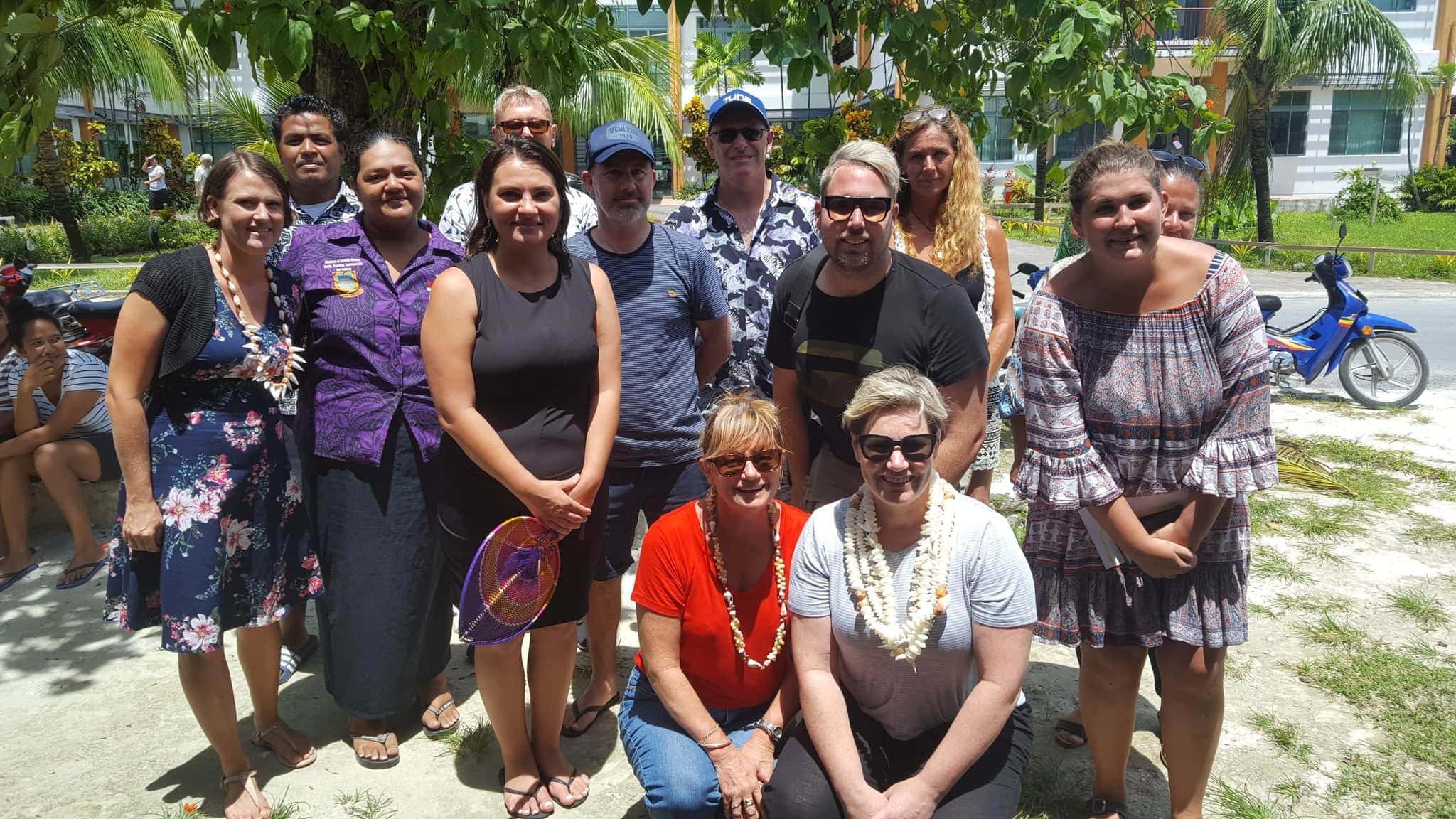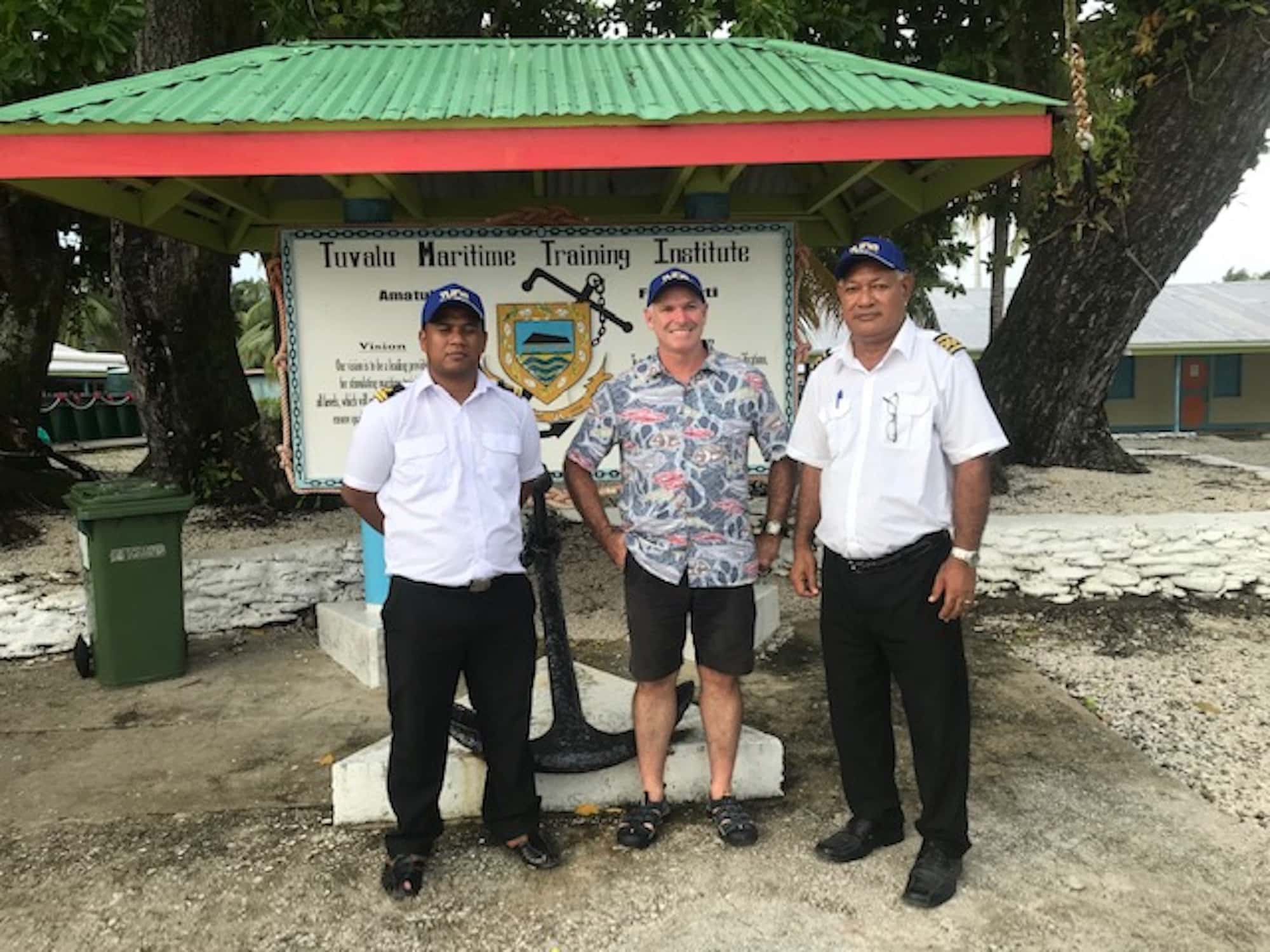Tuna Australia to provide training, scholarships to Tuvaluan seafarers
Tuna Australia CEO David Ellis has met with the Tuvaluan Prime Minister Enele Sosene Sopoaga to discuss options for Tuna Australia to support and develop natural Tuvaluan fishermen.
The meeting was part of a visit by Ellis and other Australian businesses to Tuvalu on 14–19 February to recruit Tuvaluans through the Pacific Labour Scheme (PLS) to address labour shortages.
During discussions, Mr. Ellis reaffirmed Tuna Australia’s commitment to PLS as the program provides an important source of labour for the Australian tuna industry.
“Tuna Australia’s vision is to build the knowledge and skills of natural Tuvaluan fishermen so they can work safe and effectively during their three-year placement in Australia. On completion of their work placement, they will provide the nucleus to add value to the Tuvaluan commercial fishing industry when they return home,” Ellis says.
During the meeting, Ellis and Sopoaga discussed training resources, developing a longline fishing training module, annual scholarships for outstanding graduates from the Tuvalu Maritime Training Institute (TMTI), and ensuring on-vessel training to support and upskill natural Tuvaluan fishermen while in Australia as part of PLS.

Front: Sue Beaumont (Sterling NT), Sasha Piggott (Palladium); Middle: Zoe Kidd (DFAT), Meafou Leneuoti Brian, Oxana Reed (Palladium), Ronan Mackey (NT Chamber of Commerce), Mitchell Gawthorn (Cooinda Lodge ), Jacinta Johns (Mercure Kakadu Crocodile Hotel); Rear: Tivai Taulealea (driver), Ross Boot (AustFish), David Ellis (Tuna Australia), Kerri Jeffrey (AusTop Fisheries), Antonina Spinella (AusTop Fisheries)
Currently, there are three Australian tuna operators involved in the scheme and one company accessing workers through a labour on-hire company. To date, 20 workers from Tuvalu have been placed in Cairns, Mooloolaba and Ulladulla.
Following positive feedback from the operators, demand for Tuvaluan employees is growing. At least four more companies are interested in joining the program, not to mention many other seafood companies in Australia.
Better training outcomes
To improve training outcomes, Tuna Australia will provide TMTI with wheelhouse equipment for watchkeeping, and longline equipment for simulations.
“The TMTI curriculum will be expanded to include longline fishing; for example, maintaining longline fishing equipment, deploying and retrieving a longline, and understanding the Australian longline fishing management plan,” Ellis says.

Pine Timoteo, David Ellis, Capt. Teitimani Simeona at the Tuvalu Maritime Training Institute.
The Tuna Australia Board has agreed to fund three scholarships annually to recognise outstanding graduates from TMTI.
“Each graduate will receive $1,000, a certificate and guaranteed employment with an approved Australian employer,” Ellis says. “Scholarship recipients will need to demonstrate academic excellence, a positive and can-do attitude, strong English skills, and a tidy nature.”
Building long-term capacity
A key focus of the Pacific Labour Scheme is to enhance the skills of Pacific Island nationals to contribute to the development of their national economies.
In support of this, tuna operators will provide Tuvaluan workers with on-vessel training in specialised skills, such as catching, handling and processing migratory fish in Australian waters.
“We are currently exploring how suitable Tuvaluan employees can be offered training to become an engineer or fishing vessel master 5 during the third year of their placement,” says Ellis.
“These capacity building efforts will enable Tuvaluans to command a vessel when they return home and form a nucleus to start commercial fishing within the Tuvaluan exclusive economic zone.”
The potential benefits of developing commercial fishing in Tuvalu are significant says Ellis.
“Fish caught commercially can service local markets and ensure continuity in providing protein to the Tuvaluan community. Premium high-quality fish can be transhipped through the Port of Fiji to international markets.”